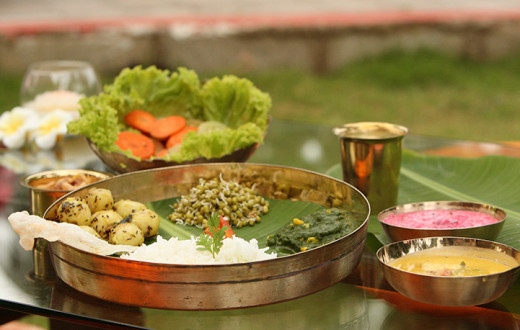You’re stuck in traffic and getting late for a meeting. Crossed a deadline twice over with trying to multitask. Messed up a meal and have guests over. The list is endless. It’s almost like this thing called stress is wanting to surprise us when we least expect it.
It’s known as the silent killer. But, what is stress?
Perhaps one of the simplest ways to understand stress is too little time, too much to do and not enough energy. Of course, stress could be caused by unnecessary worrying, too much thinking etc…but primarily stress is an imbalance of time, energy, and work.
Here are 5 things to know about stress
- Everybody experiences stress.
- Everybody has a different reaction / unique coping mechanism to stress.
- A little stress is great to get moving, sometimes. This form of stress is called acute stress. It is short-lived, activates your stress hormones (like cortisol and adrenaline) and prepares your body to handle the stress: you could perspire, heartbeat goes a bit faster. Would you have heard of ‘fight-or-flight’ response? This is what acute stress does.
- Too much stress is not great. When stress is experienced all the time, it essentially expands the state of acute stress to chronic. This means that the body is continually secreting the stress hormones, preparing the body for fight or flight. This paves the way for diseases like hypertension, blood pressure, can lead to accumulated belly fat (diseased fat) and even shrink your brain cells.
- You can learn to handle stress. And keep getting better at stress busting.
Stress busters? We know them all
We’ve heard of all these in all probability. And could be practicing some of these stress management tips as well. Releasing stress is a combination of mind and matter. Our mental make-up and the health of our body.
If the body and mind learn to better release stress, the other aspects start to fade away. The psychological fatigue, the emotional baggage, and mental pressure. So, what are these stress busters?
Conscious choices:
Choosing to be positive, choosing to pursue lifestyle habits that enhance the quality of living. These are the secret armors which help combat stress. The only thing they demand that you choose wisely. Stay away from negativity, don’t repeat stuff that doesn’t resonate with you, and simply commit to following disciplines that uplift you. Music, exercise, breathing techniques, meditation - whatever works for you.
Accepting some things:
Sometimes stress builds up for things that we simply have no control over. Though it could be tough, it’s best to understand when to let go, and simply accept. It could be the inevitable traffic that delays you in the morning or the grocer who never stocks up on the material you need. It could be a difficult boss or a stressful relationship or a stressful relative. You could choose to deal with each situation differently. After all, a traffic snarl and a snarl from a boss are two different situations. Yet, they start with acceptance, moving onto a determination to deal with it. In your unique way.
Choose your battles, wisely:
Don’t sweat over everything. The curtains might have been poorly washed by the dry cleaners. Yet, is it important to lose your cool? Or would you rather deal with it differently? And reserve the irritation reserves for a chauffeur who came in late for a parent-teacher meet. There are no rights and wrongs. Some may judge your choices - yet you need to look at your face in the mirror and pass your test. So, chase after your priorities, and decide when to wear that battle armor.
Conscious food habits:
We are what we eat. There is a reason why this clichéd idea works. The food reflects in our moods, energy levels, and how we react to situations. The right food is a great stress buster. Pumping in food which is stale, high on fat, preserved artificially, or rich in sweet content might be doing you a disservice. Food is a relationship you make with yourself, and this is lifelong. It’s best to study aspects of making nutritious food that is high on the taste factor. Understand your body’s requirements for good fats and sugar. Ayurveda says that each person’s constitution is unique, and it’s best to create a customized plan based on your understanding.
Remember your story:
Every time you feel stressed, try this tip: just take a few deep breaths and think of all the times in the past. Times that you thought were difficult, insurmountable, and trying. Times that you thought you couldn’t get through. But you did. If you could do it once, you could do it again and again. Remember your story, bring back that belief in yourself, and focus on ‘being’ in the present moment. The stress will start fading away.
Patience:
Even after remembering your story, if you find yourself getting stressed, it’s alright. Treat yourself kindly. Practice makes it perfect, and learning how to deal with stress is a lifelong process. Unexpected situations could set you back, but don’t worry if you feel your knuckles going white, or a tightening sensation in the stomach. Just relax, as much as you can. And be patient with yourself. Guilt, remorse, self-doubt or anger will only increase your stress levels, and keep you further from bettering the situation.
Keep moving:
Literally, and figuratively. Exercise is known to reduce stress levels. Stress can cause the body and mind to go into an overdrive / abnormal drive. The body-mind complex needs to relax and remove the cell memory of the stored stress. The practice of yoga helps to ease stress on the body while giving a gentle workout to the system. For instance, the Shishuasana (the child’s pose) soothes the adrenal gland which becomes active in a stressed state. Yoga also reduces risk factors for chronic diseases such as high blood pressure and heart disease.
Breathing practices, meditation, and the Sudarshan Kriya reap several benefits. These stress busters are being adopted by people and institutes the world over. A recent Harvard study found that the physiological response from meditation, tai chi, and breathing exercises can counteract cellular damage from stress.
Create your care kit:
Have a set of activities that make you feel on top of the world? Could be music, walking, painting, catching up with friends-family, or volunteering. Spending some time in a service project gives you a larger perspective on the canvas called life. Volunteering simply brushes away the ‘what about me?’ syndrome. Perceptions about yourself, people, and life itself changes.
Make time to do the things that make your spirit soar. Even as little as 10 minutes daily could give that mind a break, and make you happy. These moments of happiness and freedom will hold you in good stead if you get a little derailed by stress.
Stress could catch us unawares, and we’re all human. However, if we mindfully practice these techniques, and develop customized self-care kits, stress will become that occasional friend. You’re happy to see them once in a while, just not every day! Stress management just got more fun.
Some more reading:
Based on Gurudev Sri Sri Ravi Shankar’s talks and inputs from Dr. Prema Seshadri, Faculty, The Art of Living








































